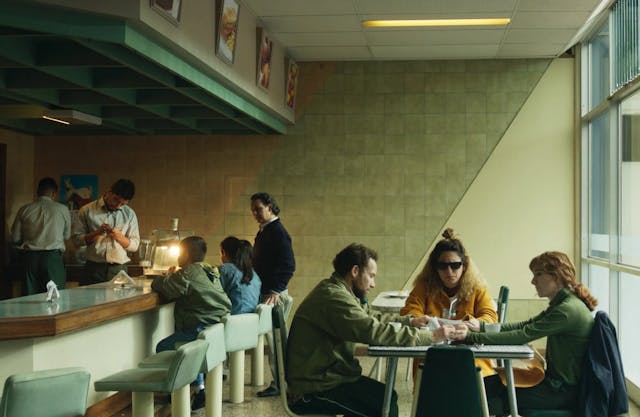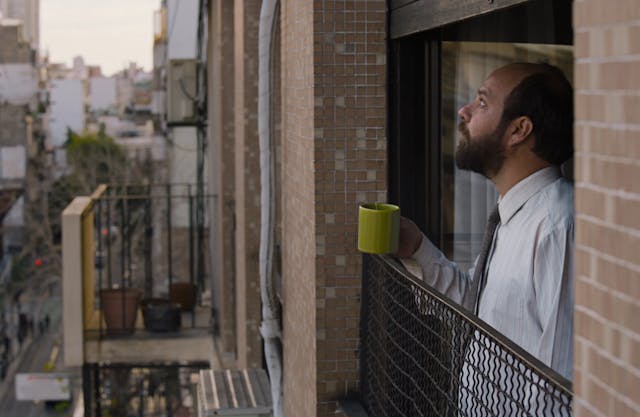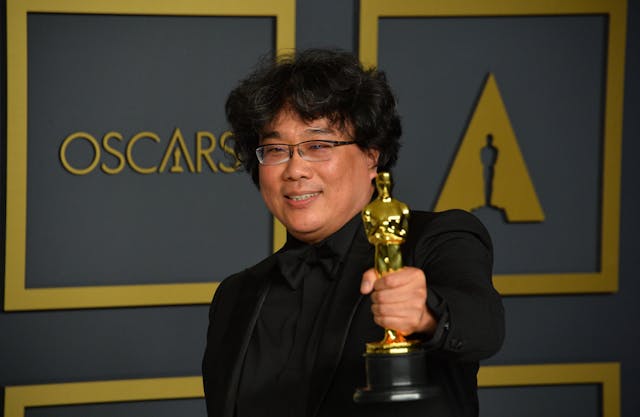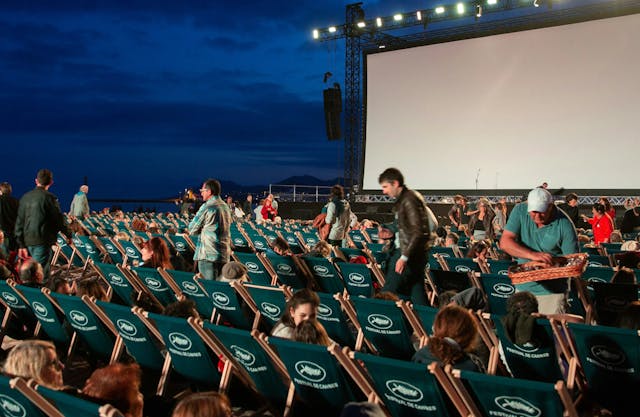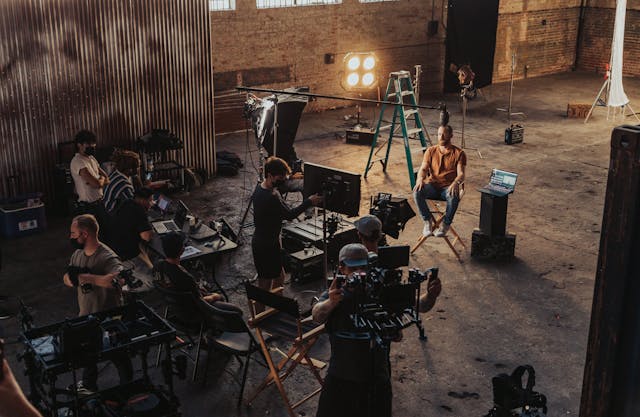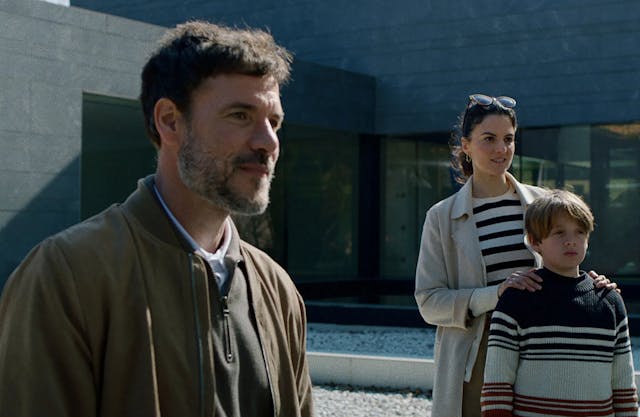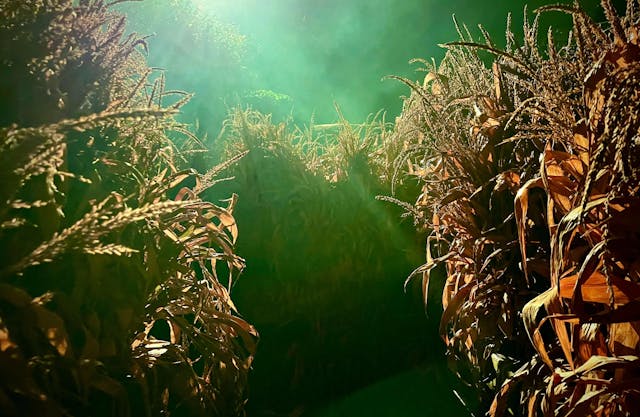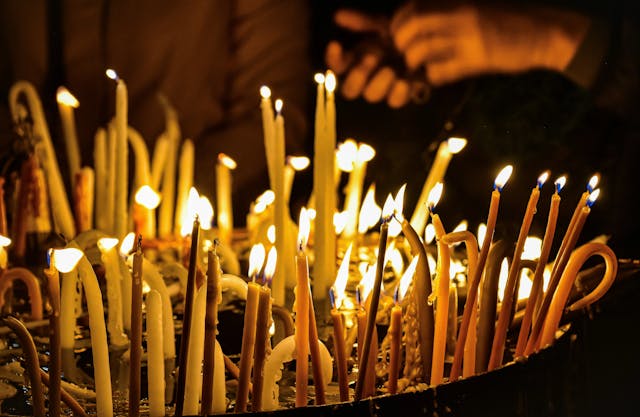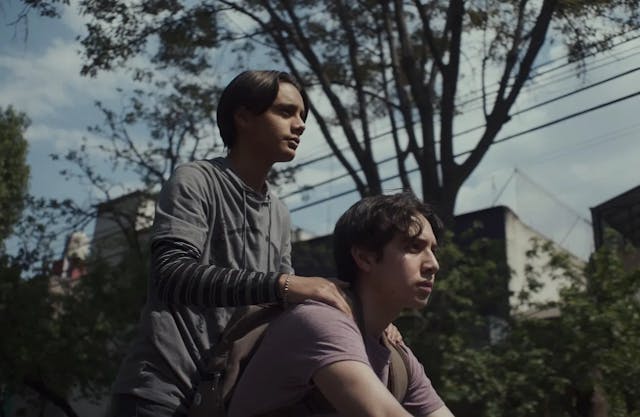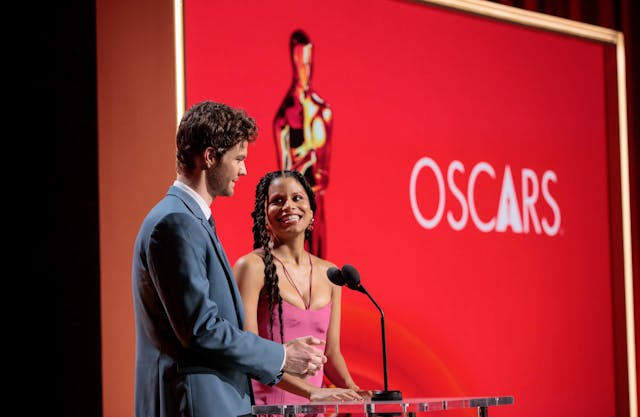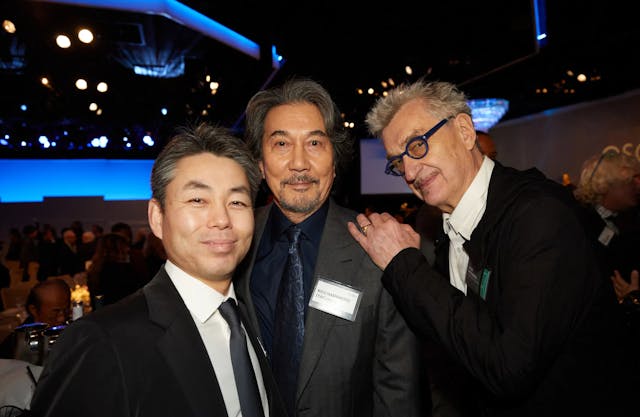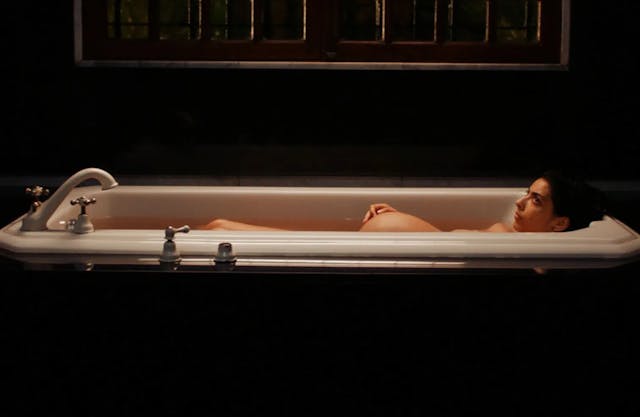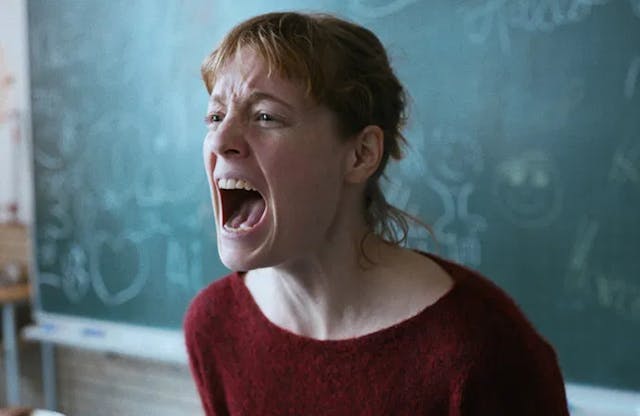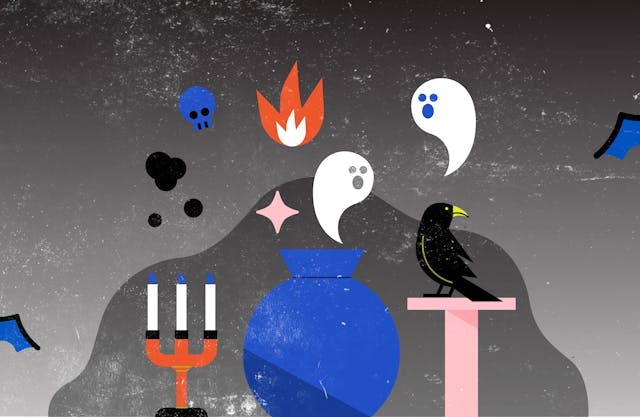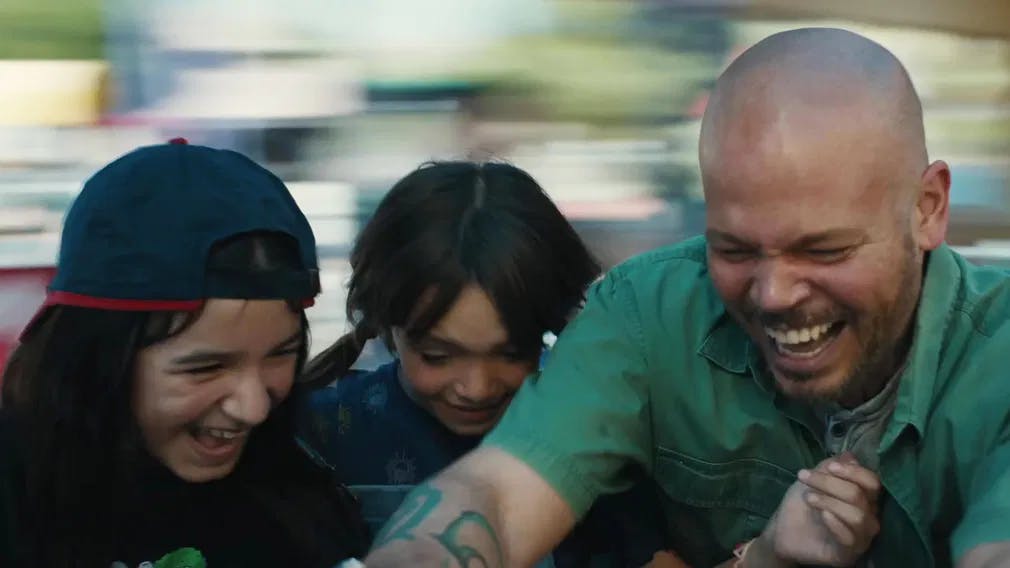
Daughters in time: Dreya Castillo, Luciana Elisa Quiñónez, and René Pérez in a rare moment of levity in "In The Summers." / Photo courtesy of Sundance Institute.
Out of all the film festivals in the world, none is more influential for the American Art House than Sundance. The indie institution closed down its 40th edition, revealing the winners selected by a jury headed by filmmaker Debra Granik. She is not a stranger, with 5 Sundance prizes awarded to three of her movies, including the breakout hit "Winter's Bone' (2010), which turned Jennifer Lawrence into a star.
Even if you have full access to the Festival, seeing enough movies to perform the hat trick of seeing every winner is difficult. Perhaps only the jurors can align their watchlist and the winner list perfectly. With online media access reduced to its minimum, we had to pony up some dough to see eight winners. Check out our first impression of those movies and the full list of winners. Stay tuned for an upcoming blog post about Award-winning short films!
In The Summers
U.S. Grand Jury Prize: Dramatic. Directing Award, U.S. Dramatic: Alessandra Lacorazza.
Colombian director Alessandra Lacorazza's feature film debut recruits Puerto Rican musical star Rene Pérez Joglar for one of those first roles that capitalize on the expressiveness of a seasoned performer and his image and fan base. He broke through in the Aughts as "Residente," half of the Latin Hip Hop duo "Calle 13." He missed the Latin Trap invasion for a few years. His solo career solidified him as a critic's darling - with Many Latin and American Grammys to go with the glowing reviews - but in recent years, he is better known for feuding on social media with Colombian rapper J. Balvin.
A movie like "In The Summers" may be just the thing to push Pérez to a new chapter in his career and introduce him to a new audience. He plays Vicente, a divorced father rebuilding his life in his hometown of New Mexico. The movie follows the summer visits by his two daughters, Violeta and Eva. They live with her mother for a good part of the year but spend a few weeks in the company of their conflicted father. Lacorazza, who also wrote the script, built the movie on three summers, identified as chapters that track the girls' physical and emotional growth. Each section opens with a shot of a striking combination of altar still-life models made up of family pictures and trinkets that allude to personal and family milestones - it's nice but unnecessary. The family is rather secular, and the gestures appear vaguely Hispanic.
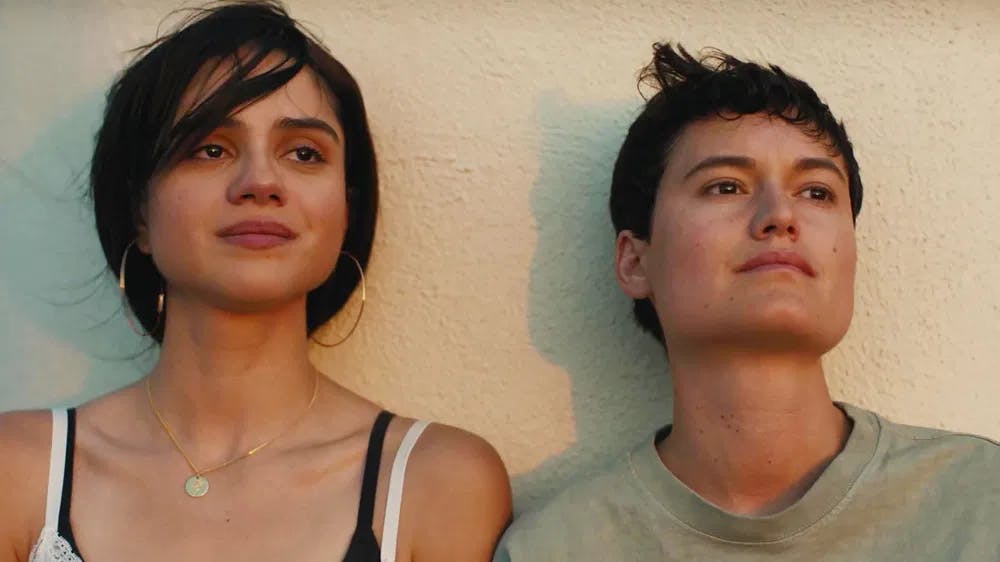
Sisters are doing it for themselves: Sasha Calle and Lio Mehiel find maturity and distance from their hot mess of a father in "In The Summers." / Photo courtesy of Sundance Institute.
Violeta (successively portrayed by (Dreya Castillo, Kimaya Thais, and Lio Mehiel) goes from a spunky tomboy to a self-assured queer young adult. Eva (Luciana Elisa Quiñonez, Allison Salinas, and Sasha Calle) struggles to get her father's attention, even if she is the most steadfast presence in his life. The director offers a disciplined exercise of emotional containment, mostly favoring observation over dramatic outbursts - we get telling hits of the reason behind Vicente's separation from his daughters' mom through a phone argument screamed behind a closed door. From the first summer, we gather he drinks too much. His descent into alcoholism and dysfunction is tracked by the state of the backyard pool in the house he inherited from his mother and the messiness around him.
Perez is good, but the true stars are the six performers playing tag in the roles of Violeta and Eva. Mehiel is returning to Sundance after last year's "Mutt." Calle, better known for her role as Supergirl in the DC-Warner Bros. flameout of "The Flash" (Andy Muschietti, 2023), is virtually unrecognizable but assuredly demonstrates there should be plenty of work for her after the comic cinema fracas. "In the Summers" is a triumph of casting.
Porcelain Wars
U.S. Grand Jury Prize: Documentary
If you have ever wondered about the difference between a news story and a documentary, look at "Porcelain Wars." A news story can tell you the facts about the war in Ukraine, but only a movie like this can give you the feeling of living under fire.
Slava and Anya Leontyev are sculptors dedicated to working with porcelain. He crafts the molds that give life to figurines inspired by nature around them while she paints them in staggering detail. War disrupts their idyllic life. Slava is recruited to train civilians in the handling of war-grade weapons while she holds the fort amid raining bombs. The maddening coexistence of routine and life-extinguishing violence is crystallized in a leisurely stroll by their beloved forest when they mark the presence of landmines with warning signs. They do this as naturally as picking wild mushrooms.

Art among the ruins: an owl made by Slava and Anya Leontyev defies Russian fire in "Porcelain War." / Photo by Slava Leontyev and Andrei Stefanov, courtesy of Sundance Institute.
"Porcelain War" expands to include Cinematographer Andrey Stefanov and the civilian squad of volunteers to which Slava belongs. Through their collective experiences, we see how war tears apart the fabric of life and the ties that bind us. At turns scary and comforting, it is easy to see why the movie took the Grand Jury Prize for Documentary. The error of war is tempered by whimsical sequences that animate Anya's paintings on the porcelain pieces. The cuteness is modulated by how the drawings morph to mirror the destruction of the rural landscape.
Sujo
World Cinema Grand Jury Prize: Dramatic
Chapter headings are in vogue. "Sujo" is an understated epic narrative about the coming-of-age of the innocent son of a narco gunman in rural Mexico. The movie is divided into chapters that switch the story's focus among the characters surrounding Sujo, the cryptically-name boy who grows from a toddler into a young man as the people in his life succumb to violence. Will he be able to avoid this destiny?
The writing-directing team of Astrid Rounder and Fernanda Valadez strive for a combination of lyricism and realism. You get the dusty, dry Michoacán and the chaos of the proletarian side of Mexico City, with occasional apparitions by ghosts that warn the characters of impending doom. Each chapter is titled after different characters who influence Sujo's life - for better or worse -. The movie takes a Dickensian dimension, ending on a note of wish fulfillment that goes against the grain of reality, perhaps even more so than the incursion of the spirits. You can be grateful they run against the narco-glam that infects much of popular culture nowadays. And knowing how to satisfy an audience, the directors are good enough to dispel the mystery of Sujo's name.
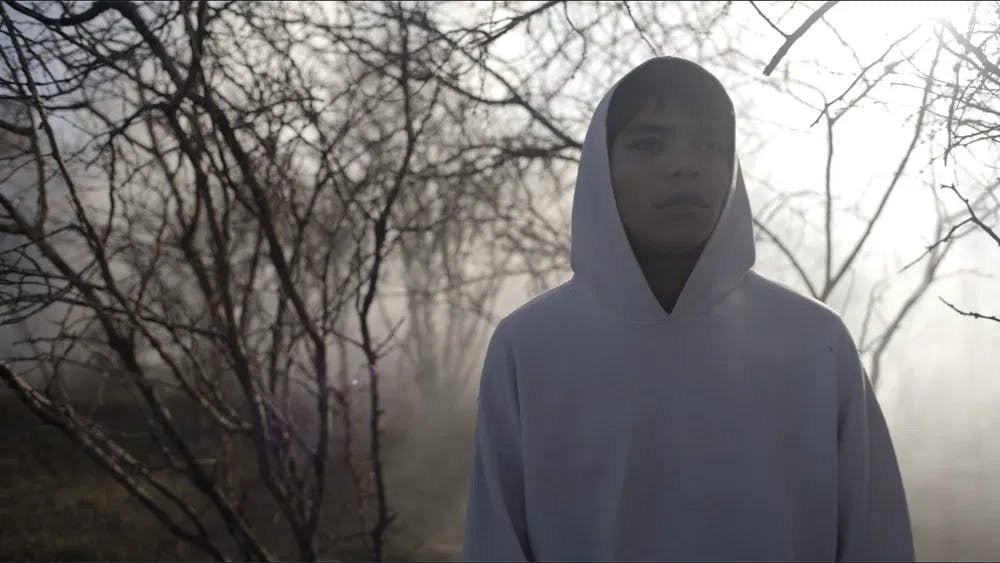
Your name is what?: Juan Jesús Varela tries to escape a heritage of narco-violence in "Sujo" / Photo by Ximena Amann, courtesy of Sundance Institute.
A New Kind of Wilderness
World Cinema Grand Jury Prize: Documentary.
If a revelation occurs in the first five minutes of a movie, it's not a spoiler. If you think otherwise, please stop reading now. It is impossible to write about this Norwegian documentary without telling you the tragedy that upends the lives of Maria Gris Vatne, Nik Payne, and their brood. Keen on protecting the Earth and teaching their kids about it, they go off the rat race and dedicate themselves to living off the land on a farm. They homeschool their kids, too. All is well in paradise until we get notice that Maria is diagnosed with cancer. When you think the movie will be about eco-warriors forced to move to the city to face a formidable health scare, Maria succumbs to the illness. It's a shocking development that sets you up for a moving exploration of grief and how to keep on living in the face of the most painful loss.
Nik takes on the leadership of the family. Teenage Ronja, Maria's daughter from a previous relationship, goes away to live with her father. That brings another unwelcome change for the youngest: perceptive preteen Retja and rambunctious boys Ulv and Falk. Their lifestyle choices may alarm you: little Ulv proves to be very proficient at handling knives and wants to bring his favorite one to school. One of the many changes the family faces is to return to society at large. Besides entering the "prison" of the school system, they have to move to a smaller farm closer to town. Without Maria's income as a photographer, Nik can't get the eco-train running and must get a regular job. It's a drag, but little by little, they come to terms with their new reality. The main focus remains grief and how it can catalyze growth and change.

Country girl: Retja makes fond memories before moving to town in "A New Kind of Wilderness." / Photo by Maria Gros Vatne, courtesy of Sundance Institute.
The movie finds some added friction in the cultural differences that come to the foreground when Nik leads the family alone. As a British man, he feels like a foreigner in Norway without Maria by his side. Will he uproot the kids to move them to the U.K., where he will feel more at home? I felt more suspense, wondering whether the kids had received the COVID-19 vaccine. Even if masks are sometimes visible, the question is never addressed - perhaps it's better that way. I would have soured on Nik if he had become anti-vaccine. Let me remain ignorant and able to recommend "A New Kind of Wilderness" as a lovely, moving documentary.
Sugarcane
Directing Award: U.S. Documentary.
This is another exhibit of how documentaries can reveal life beyond the facts. We all read the news about the violent history of the catholic residential schools for decades in Canada and the U.S., where indigenous children were subjected to abuse. We might have read about the bodies buried in the surrounding areas and the belated apology by the Vatican. The knowledge can't prepare you for the impact of this documentary by Emily Kassie and Julian Brave NoiseCat. He belongs to the Secwepemc tribe at the Williams Lake First Nations and is the son of an abuse survivor.
The movie tries to rebuild the story of his father, Ed Archie Noisecat, an artisan who has blocked the most traumatic episodes of his childhood - and does not know the full truth about his origin. We also spend time with Charlene Belleau, an activist spearheading the investigation of the abuses. Chief Willie Sellars helps his tribe navigate public opinion through media appearances, and former chief Rick Gilbert represents his people at an audience with the Pope. As a devout catholic, he embodies the maddening contradictions history has fostered on survivors like him. A DNA test reveals he is half Scottish, just like the priest who presided over the school his mother attended.
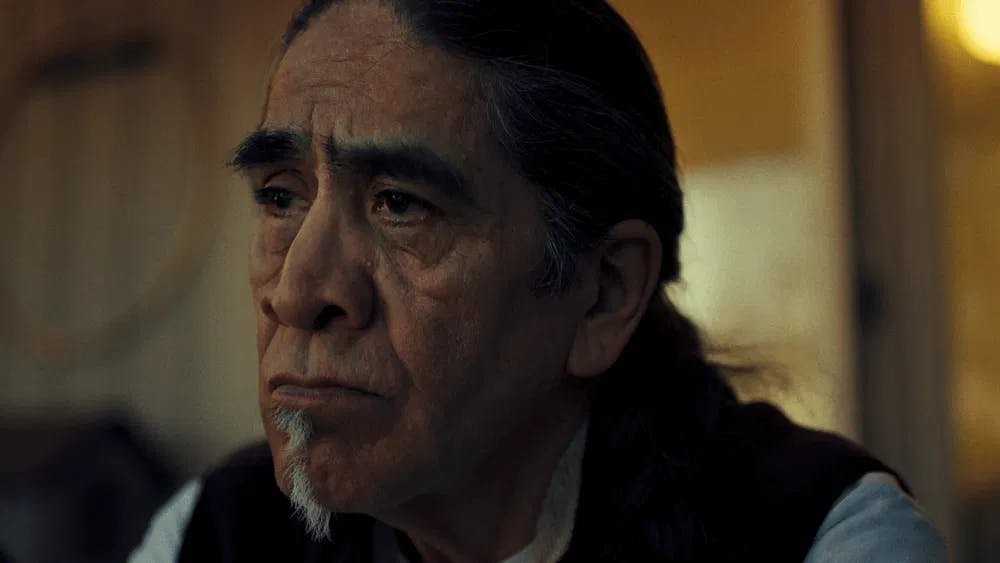
A man without a past: Ed Archie NoiseCat looks for a lost chapter in his life in "Sugarcane." / Photo by Emily Kassie, courtesy of Sundance Institute.
At times, it is too much to take. It's even more chilling when you contemplate how recently these crimes were perpetrated. There's no satisfactory resolution to this episode except the contemplation and recognition of other people's suffering. Bearing witness is the least - and tragically - the best we can do.
Ibelin
Directing Award: World Cinema Documentary. Audience Award, World Cinema Documentary.
Matts Steen, the young Norwegian man at the center of "Ibelin," suffers from a degenerative muscular disease called Duchenne Syndrome. But this is not your run-of-the-mill horrible illness documentary. Director Benjamin Ree crafts an involving post-mortem mystery to be solved in front of our eyes, or rather, in front of Steen's family. His father, mother, and sister do not know of the rich life he developed online in a World of Warcraft community.
Ree uses home movies, digital transcripts, and animation to recreate Steens' life before our eyes. Part of the movie takes place within the digital realm of the role-playing game, where the boy can transcend his physical condition and coexist in full equality with other people. Liberated from the limitations imposed by the illness, he first with girls, builds sturdy friendships and even serves as a curiously effective family therapist for other gamers. Texts and emails provide a real-life script for a fully animated reenactment of his virtual life, where Steen and his friends interact as the avatars they used in the game.
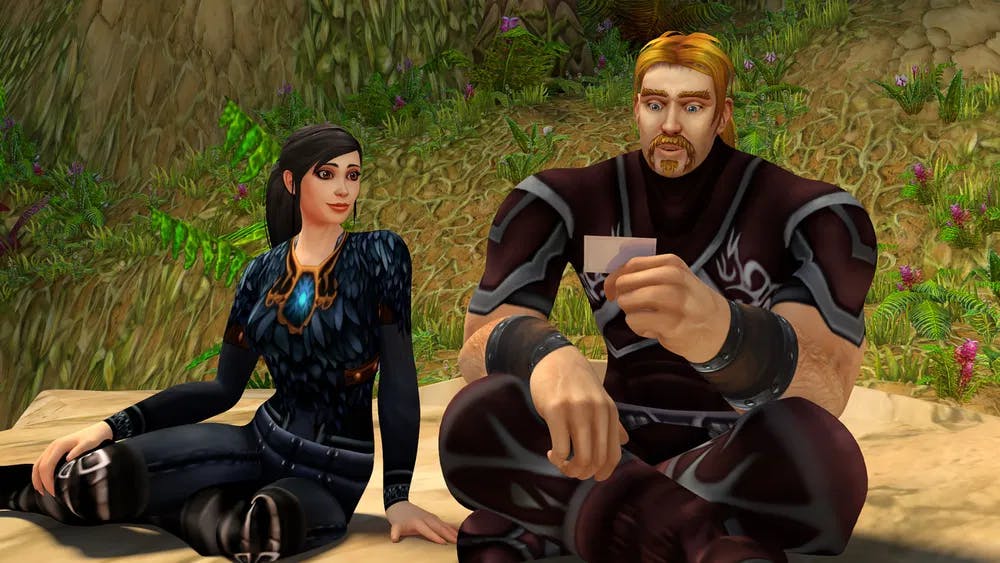
Virtual Don Juan: Matt Steens digital alter-ego is a hit with the ladies in the alternative world of "Ibelin." / Photo courtesy of Sundance Institute.
The narrative inventiveness elevates this humane but recognizable story to a higher level. You will never see gaming, nor people, with the same eyes.
Gaucho Gaucho
U.S. Documentary: Special Jury Award for Sound.
There is a strain of documentary that marries ethnography with sturdy aesthetics. If you want to be a cynic, you could call it Coffee Table Book Cinema. It looks at particular communities and records them for posterity with beautiful camera work, hinting at daily life's drama and comedy without crossing into full-blown plot-making. Such is the case of "Gaucho Gaucho." The anaphora of the title is translated as a call for authenticity - a little kid insists he wants to be "Gaucho, Gaucho," that is, a real gaucho. Think of them as the Argentinian version of the American cowboy, occupying a similar mythical space in pop culture.
Directors Michael Dweck and Gregory Kershaw hit the Pampas and find a cadre of compelling characters. The closest one to getting star status is Guada Gonza, a strikingly beautiful girl who wants to commit to the Gaucho life and become a horse tamer. There's also Santito, a diminutive man with a booming voice who regals listeners on the airwaves of the local radio station and at rodeos. A cheeky old man ponders how his life would change if he were young again, and two little boys make an adventure out of earning their Gaucho bona fides. The movie is an immersive experience that will reward those in synch with its contemplative pace.
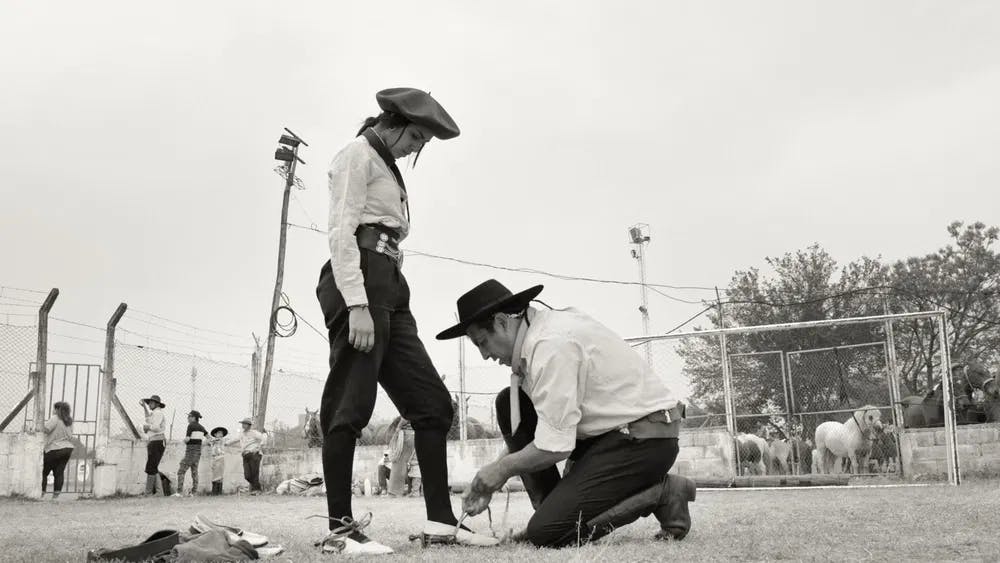
The Queen of Las Pampas: Tati Gonza prepares daughter Guada for a ride in "Gaucho Gaucho." / Photo courtesy of Sundance Institute.
In The Land of Brothers
Directing Award; World Cinema Dramatic.
Raha Amirfazli and Alireza Ghasemi's "In The "Land of Brothers" brings a startling look at the plight of Afghani immigrants in Iran, the "land of brothers" of the title. Three stories featuring interconnected members of the same family highlight different instances of injustice and duress. Mohammad (Mohammad Hosseini) is a young teenage boy who is targeted for harassment by a policeman. Leila (Amideh Safari) is a young domestic worker who hides her husband's dead body so that their employers do not report the event to authorities, who might find out she is undocumented and deport her. Asgari (Hajeer Moradi) finds out he has been granted citizenship in the worst possible way. Each chapter is separated by a time jump, hinting at how integration in a new society morphs the problems immigrants encounter through time.
There might be some novelty in the setting and the nationality of the characters, but with very few adjustments, you could set this story in any country where immigrants fight for a dignified life. Is it universality or superficiality? You be the judge. Think of "In The Land of Brothers" as another entry in the Art House-ready genre of interconnected stories of human suffering and strife.
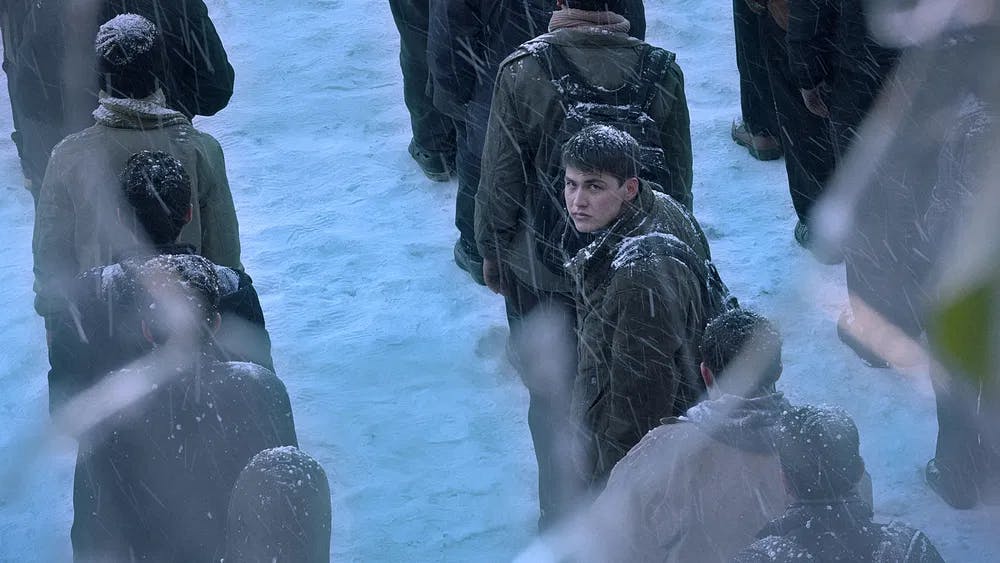
Looking back in anger: immigrant Mohammad Hosseini gets a raw deal "In The Land of Brothers." / Photo courtesy of Sundance Institute.
All the Winners!
Our limited access to festival titles kept the rest of the winners away from our eyeballs, but feel free to take a gander at the list. As the movies hit their theatrical run, expect our reviews.
U.S. Grand Jury Prize, Dramatic: "In The Summers," directed by Alessandra Lacorazza.
U.S. Grand Jury Prize, Documentary: "Porcelain War," directed by Slava Leontyev and Brendan Bellomo.
World Cinema Grand Jury Prize, Dramatic: "Sujo," directed by Astrid Rounder and Fernanda Valadez.
World Cinema Grand Jury Award, Documentary: "A New Kind of Wilderness," directed by Silje Evens Jacobsen.
Next Innovator Award:" Little Death," directed by Jack Begert.
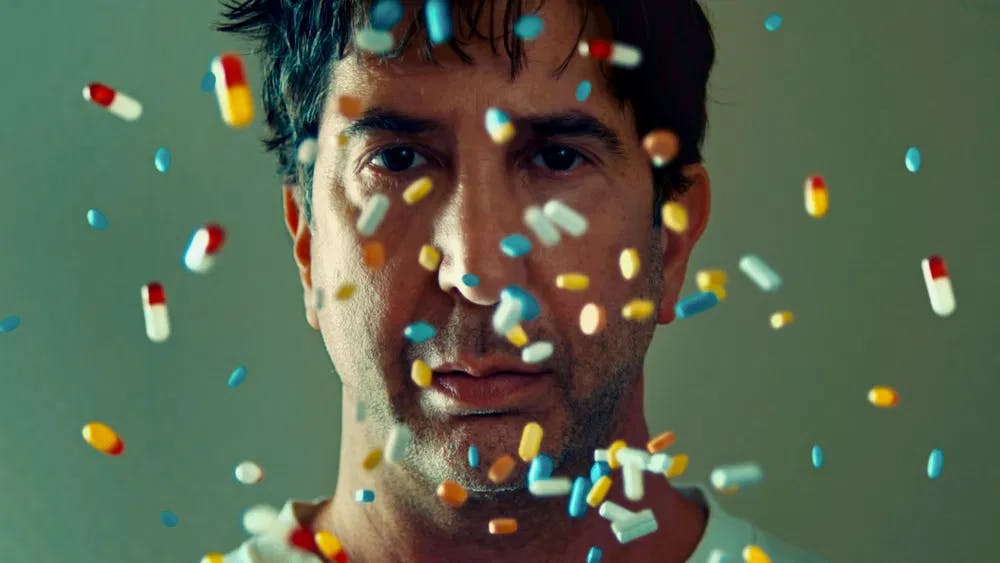
He's a pill: David Schwimmer is a screenwriter in crisis in "Little Death." / Photo courtesy of Sundance Institute.
Festival Favorite Award, Audience Award U.S. Documentary: "Daughters," directed by Angela Patton and Natalie Rae.
Audience Award, U.S. Dramatic: "Didi," directed by Sean Wang.
Audience Award, World Cinema Documentary: "Ibelin," directed by Benjamin Ree.
Audience Award, World Cinema Dramatic: "Girls Will be Girls," directed by Shuchi Talati.
Audience Award, NEXT: "Kneecap," directed by Rich Pepiat.
Directing Award, U.S. Documentary: "Sugarcane," directed by Julian Brave NoiseCat and Emily Kassie.
Directing Award, U.S. Dramatic: "In The Summers," directed by Alessandra Lacorazza.
Directing Award, World Cinema Documentary: "Ibelin," directed by Benjamin Ree.
Directing Award, World Cinema Dramatic: "In The Land of Brothers," directed by Raha Amirfazli and Alireza Ghasemi.
Waldo Salt Screenwriting Award U.S. Dramatic: "A Real Pain," written and directed by Jesse Eisenberg.
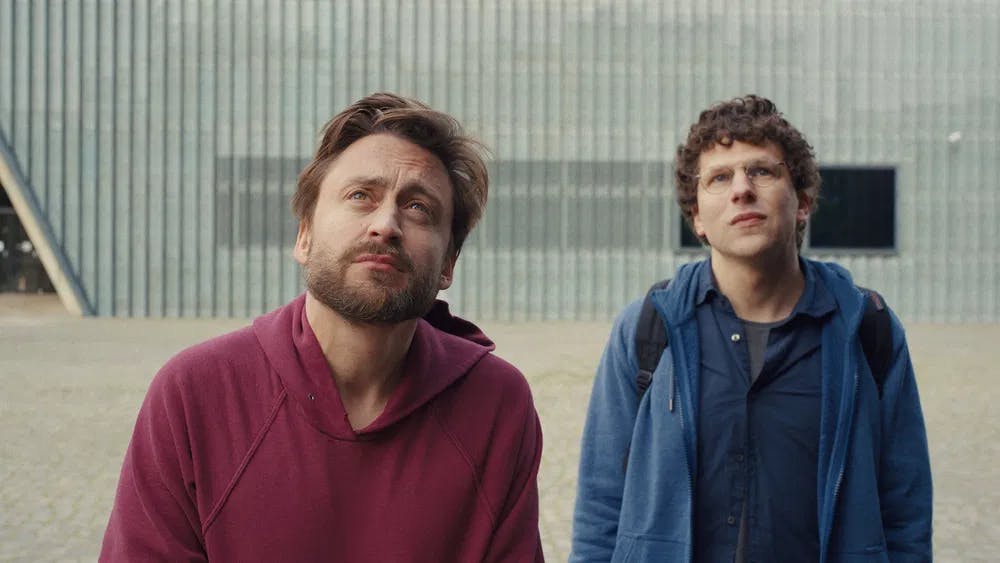
"Succession" favorite son: Kieran Culkin leaves Roman Roy behind in "A Real Pain" with a little help from Jesse Eisenberg. / Photo courtesy of Sundance Institute.
Jonathan Oppenheimer Editing Award, U.S. Documentary: "Frida," directed by Carla Gutierrez.
U.S. Documentary Special Jury Award for Sound: "Gaucho Gaucho," directed by Michale Dweck and Gregory Kershaw.
U.S. Documentary Special Jury Award for the Art of Change: "Union," directed by Stephen Maing and Brett Story.
U.S. Dramatic Special Jury Award, Ensemble: "Didi," directed by Sean Wang.
U.S. Dramatic Special Jury Award for Breakthrough Performance: "Suncoast," Nico Parker. Directed by Laura Chinn.
World Cinema Documentary Special Jury Award for Craft: "Nocturnes," directed by Anirban Dutta.
World Cinema Documentary Special Jury Award for Cinematic Innovation: "Soundtrack to a Coup d'Etat," directed by Johan Grimonprez.
World Cinema Dramatic Special Jury Award for Original Music: "Handling the Undead," original score by Peter Raeburn. Directed by Thea Hvistendahl.
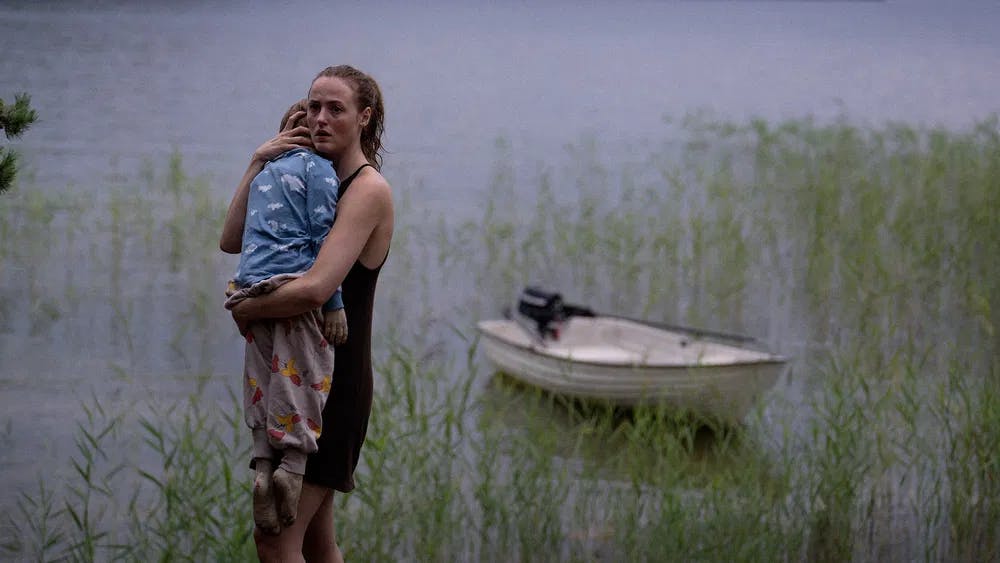
Who's a zombie now?: Renate Reinsve needs lessons in "Handling the Undead." / Photo by Pal Ulvik Rokhset, courtesy of Sundance Institute.
World Cinema Dramatic Special Jury Award for Acting: Preeti Panigrahi, for "Girls Will Be Girls." Directed by Shuchi Talati.
Special Jury Award for NEXT: "Desire Lines," directed by Jules Rosskam.
Short Film Grand Jury Prize: "The Masterpiece," directed by Alex Lora Cercos.
Short Film Jury Award, U.S. Fiction: "Say Hi After You Die," directed by Kate Hollowell.
Short Film Jury Award, International Fiction: "The Stag," directed by An Chu.
Short Film Jury Award, Nonfiction: "Bob's Funeral," directed by Jack Dunphy.
Short Film Jury Award, Animation: "Bug Diner," directed by Phoebe Jane Hart.
Short Film Special Jury Prize for Directing: "The Looming," directed by Masha Ko.
Short Film Special Jury Prize for Directing: "Pisco the Crab Child is in Love," directed by Makoto Nakisha.
Alfred P. Sloan Feature Film Prize: "Love Me," directed by Sam & Andy Zuchero.
Sundance Institute & Amazon MGM Studios Producers Awards for Nonfiction: "Stress Positions," produced by Brad Becker-Parton and directed by Theda Hammel.
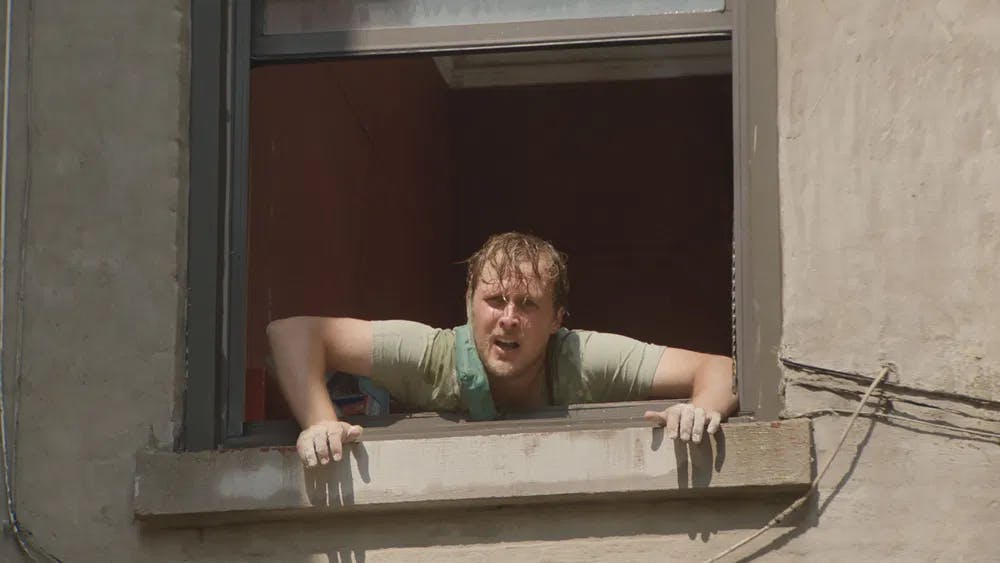
Guncle under stress: John Early is not ready to care for his nephew under COVID-19 quarantine in "Stress Positions." / Photo courtesy of Sundance Institute.
Watch “Lonely”
“Lonely” is a powerful reminder that no one is ever truly alone, and there is always someone out there who cares and wants to help.
Stream NowWant to get an email when we publish new content?
Subscribe today

